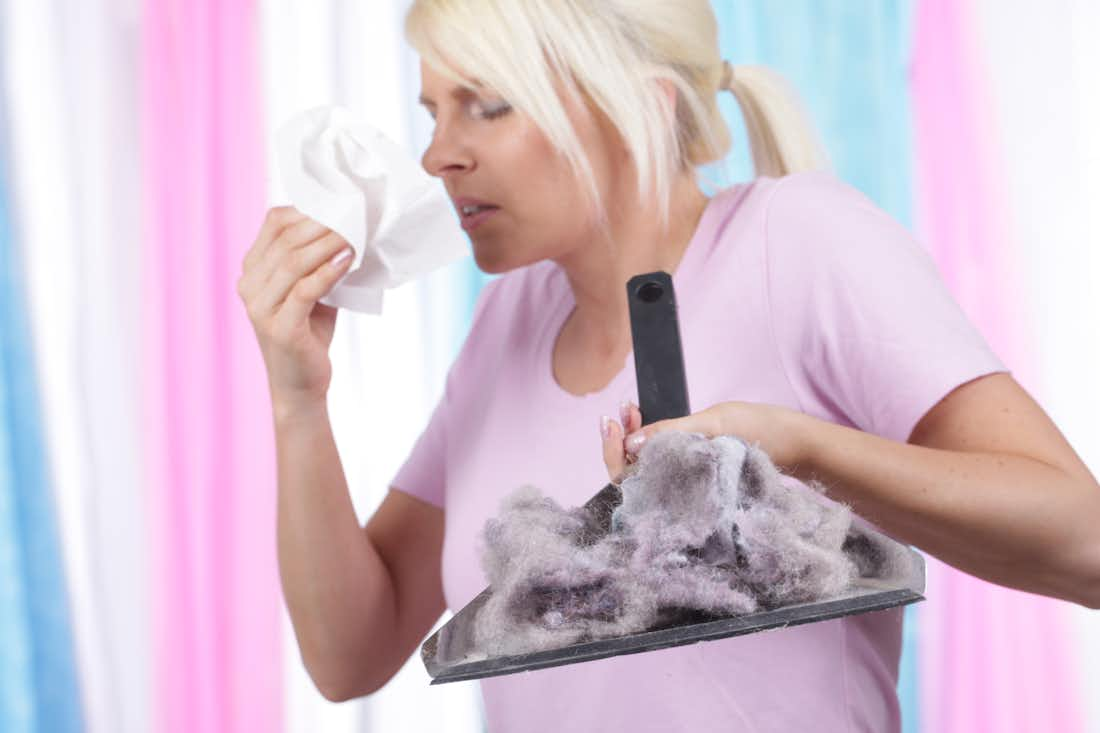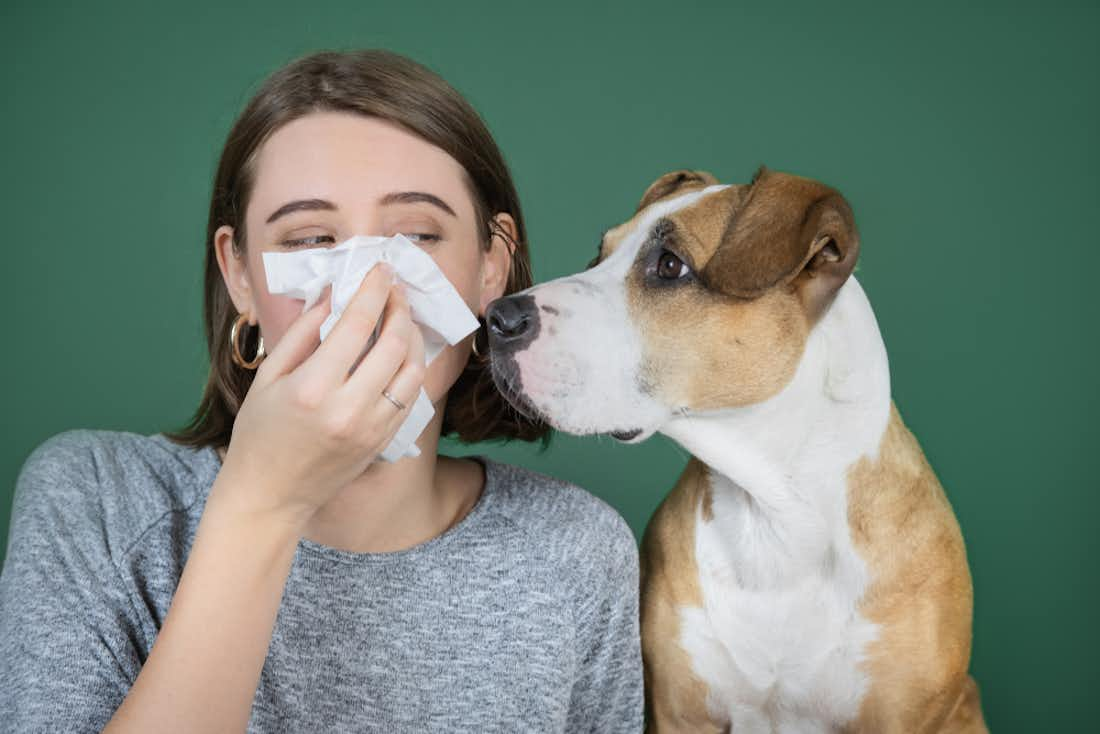Oct 13, 2021
What You Need To Know About Allergies and Asthma
4 minute read
Allergies and asthma might sound like the name of a cool new punk band, but there’s nothing cool about either of them. In fact, they’re both punks.
Despite their differences, allergies and asthma can go hand in hand. And while they’re uncomfortable, they’re common, manageable, and usually not life-threatening.
Understanding how each goes hand in hand can help you prepare and persevere through even the toughest allergic reactions and asthma attacks. Here’s everything you need to know about them both.
What Are Allergies?
If you’re one of those people who needs to carry around an extra pouch of tissues in your backpack or handbag, you’ve probably got some allergies. Allergies (considered an allergic disease) occur when your immune system reacts to a foreign substance that it perceives as harmful (like pollen) even when it’s not. Some examples of allergies include hay fever (allergic rhinitis), hives (delta food allergy).
Some things that you might be allergic to include: animal dander, tree pollen, ragweed pollen, grass pollen or mold. It really just depends upon the person.
Sniffling, sneezing, nasal congestion and coughing are typically the most common symptoms of allergies.
However, some people may notice symptoms in their throat or sinuses. Some people may get allergy-induced asthma, which is often where people confuse these two conditions.
What Is Asthma?
Asthma has so many silent letters that it makes us feel uncomfortable. And that sounds about right, as asthma is super inconvenient.
Asthma is a condition that makes breathing difficult. It causes your airways to narrow and swell, which produces extra mucus in your lungs. This can trigger coughing, wheezing, or shortness of breath.
For some people, asthma is a chronic condition that doesn’t necessarily have an underlying cause. However, some people with allergies or allergic rhinitis may experience allergy-induced asthma as a byproduct. This is usually temporary until exposure to the allergen is reduced, or medications like antihistamines and inhalers are taken to reduce the symptoms.
The Allergy-Asthma Connection
You might have allergies without asthma, and you might have asthma without allergies. However, they often occur together, especially in children.
Allergies and asthma are both caused by your body attempting to protect itself from substances that it thinks are harmful. For that reason, they’re often caused by the same things as tree pollen, grass, ragweed, or pet dander.
However, asthma can also be caused by non-allergens such as exercise, cold air, viruses, infections, and stress.
Allergic asthma results in the same symptoms as other forms of asthma in that it constricts your airways and can make it hard to breathe. However, it can also be associated with symptoms like sneezing, watery eyes, and a runny nose.
Treating Asthma and Allergies
The good news about these dreaded A words is that they can be easily managed. You’ve probably heard of antihistamines or nasal sprays, which are fast-acting ways to reduce the symptoms of allergies so you can start enjoying your day.
For asthma, many people use inhaled corticosteroids, or inhalers, to help loosen the airways and dispel mucus. Additionally, some people can use oral medications that help alleviate asthma symptoms.
But what if you have to deal with both at the same time? Is there a combination treatment that can help knock out everything at once? There are a few options.
One is known as a leukotriene modifier. Leukotrienes are chemicals released by the body that can cause difficulty breathing, coughing, tightness in the airways, or extra fluid in the throat. These medications work to inhibit the body from producing them, therefore lessening allergies and asthma symptoms.
Another option is sublingual immunotherapy. Also known as allergy immunotherapy, this is a long-term allergy treatment that actually addresses the underlying causes of allergies, rather than just the symptoms.
This treatment works by gradually exposing your body to allergens through under-the-tongue tablets. What happens is that your body becomes accustomed to the trigger, making it so that you become more tolerant. This reduces allergy symptoms while simultaneously reducing the risk of developing allergy-induced asthma.
A one-stop shop to nab asthma and allergies might sound outlandish and unsafe. But it’s the only FDA-approved sublingual allergy immunotherapy treatment on the market.
Preventing Asthma and Allergies
While you may not be able to avoid every single allergy or asthmatic trigger out there, you can take some simple steps to avoid their wrath in the first place.
For one, try to control exposure to dust mites, a common allergen, and asthmatic trigger. Frequently wash your linens in hot water while keeping indoor humidity below 50%. Dust mites aren’t as mighty as you might think!
Also, try to avoid smoke exposure if you can. Wood smoke can be a major asthma risk that can worsen asthmatic and allergic symptoms.
Clearing the Air
Allergic reactions and asthma might be entirely different conditions, but they’re often the same. Many common allergic triggers can lead to allergy-induced asthma, which is a narrowing of the airways that makes it difficult to breathe.
Many people develop allergic and asthmatic symptoms from the same things, such as pollen, pet dander, ragweed, and more. While most treatments will work for one or the other, a few treatments such as immunotherapy or leukotriene modifiers that seek to attack both.
If you want to avoid allergy shots or your typical allergy prescription that just isn't showing progress in combating your allergies, this is where we can help.
Of course, you can always just try your best to avoid the triggers that spark these reactions in the first place. But when that’s impossible, let Cleared bring you some relief.
Sources:
Allergies and the Immune System | John Hopkins Medicine
Anaphylaxis - Symptoms and causes | The Mayo Clinic
Why Some People Have Allergies and Others Don't? | Vikram Hospital



